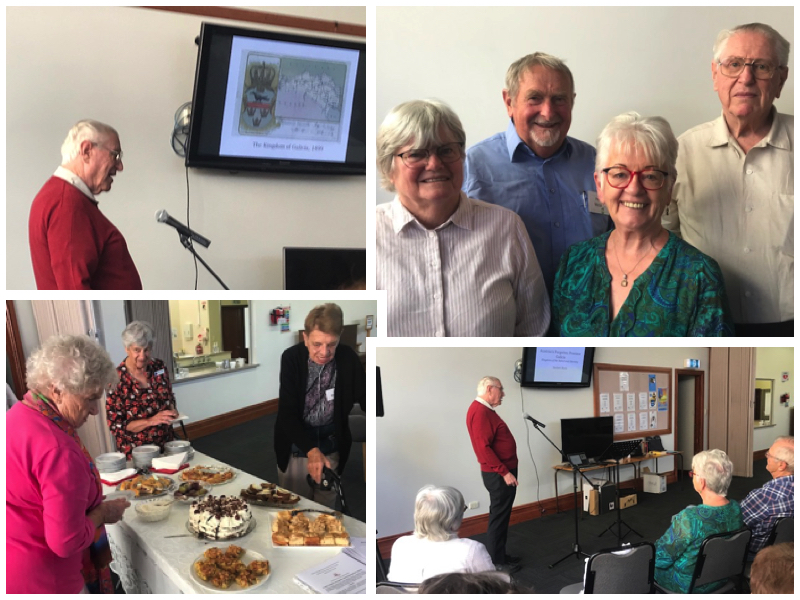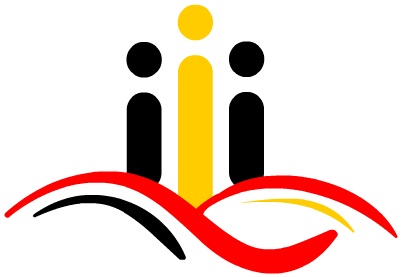Kingdom of the Naked and Starving
by John Clarke
That is the description that Bert Stock, the guest speaker at the last meeting of Kaffee und
Kuchen, gave of the land of his ancestors. Bert was a CSIRO engineer, who in his
retirement has researched the history of German settlement in Adelaide and the Adelaide
Hills, and most recently the history of his own family.
The Kingdom of the Naked and Starving was the name applied to the region many years
ago, but it would be equally appropriate to call it Europe’s war zone. Galicia, as it was
known at the time of Bert’s ancestors, straddles what is now south-eastern Poland and
western Ukraine.
Bert’s talk began with the defeat of the Ottoman Empire at the Battle of Vienna which
ended the Ottoman advance westward and northward. At that time the region was part of
the Polish-Lithuanian Commonwealth, but with the defeat of the Commonwealth in 1772
it became part of the Austro-Hungarian Empire, and it was at that time that it was given
the name Galicia.

While it was the largest, most populous and northernmost province, rule from the capital
Vienna was almost impossible. Separated by the barrier of the Carpathian mountains,
Galicia was vulnerable and poverty stricken. Its small farms were not profitable and
could not adequately support the population. And so with its diverse, not always amicable
population of Poles, Ruthenians (Ukrainians), Germans, Ashkenazi Jews and Czechs it
struggled on into the nineteenth and then the twentieth century.
Bert’s grandparents Pinkas Liebermann and Julius and Marie Stock were part of the
Jewish community. Both grandfathers joined the army as members of artillery units,
Julius being promoted to the rank of major. In 1914 the First World War began with the
Austro-Hungarian army fighting alongside the Germans and the Turks.
Much is written and said about the Western Front with its trenches, suicidal dashes into
No man’s land and poison gas. The Eastern Front was different. Battles raged across the
region. Over 100,000 square miles (260,000 square kilometres) were occupied by a
foreign army. Approximately four million soldiers died and two million civilians.
Pinkas Liebermann and Julius Stock survived the war, but fifteen years of privation was
followed by the rise of Hitler and his anti-Jewish policies. As World War II progressed
and the Germans invaded most of Europe, Julius joined the Resistance. He was captured
and executed. His wife Marie was sent with other Jews to a Nazi death camp. Pinkas’ life
too ended in a death camp.
It was a harrowing story, and Bert’s historical perspective shed new light on the ongoing
conflict in Ukraine.
The next meeting of the German speaking group Kaffee und Kuchen will be held at the
Langmeil Centre, 7 Maria Street, Tanunda on Monday, 28 April, starting at 1pm.
